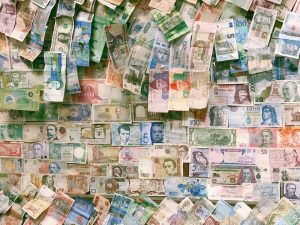Forex arbitrage is a trading strategy in which a trader takes advantage of the price discrepancies in the currency market to make a profit. In other words, it involves buying and selling the same currency pair simultaneously in different markets to take advantage of the price difference. On the other hand, bank rates refer to the exchange rates that banks use to buy and sell currencies in the foreign exchange market.
Forex arbitrage rate compared to quoted bank rates is an interesting topic that requires a deep understanding of the forex market and the various factors that influence the prices of currencies. In this article, we will explore the differences between forex arbitrage rates and quoted bank rates, and how they affect traders and investors.
Forex Arbitrage Rates
Forex arbitrage rates refer to the prices at which a trader can buy and sell a currency pair in different markets simultaneously to make a profit. This trading strategy involves taking advantage of the price discrepancies that exist in the forex market, which can be caused by various factors such as market inefficiencies, time lags, and liquidity imbalances.
For example, let’s say that the EUR/USD currency pair is trading at $1.1000 in the New York market and $1.1050 in the London market. A trader can buy the EUR/USD pair in New York and sell it in London simultaneously, making a profit of $0.0050 per euro. This is known as a forex arbitrage opportunity.
Forex arbitrage rates are not fixed and can change rapidly depending on market conditions. Traders who use this strategy need to be quick and efficient in executing their trades to take advantage of these opportunities before they disappear.
Quoted Bank Rates
Quoted bank rates refer to the exchange rates that banks use to buy and sell currencies in the forex market. These rates are usually calculated based on the current market conditions and the demand for a particular currency.
Banks use quoted rates to facilitate international transactions, such as buying and selling goods and services, paying salaries, and repatriating profits. These rates can also be used by traders and investors to make informed decisions about their forex trades.
However, quoted bank rates are not always the same as the actual market rates. Banks may add a markup to their exchange rates to cover their costs and make a profit. This markup can vary depending on the bank’s policies and the currency being traded.
Comparison Between Forex Arbitrage Rates and Quoted Bank Rates
Forex arbitrage rates and quoted bank rates are two different concepts that can affect traders and investors in different ways. Here are some of the key differences between the two:
1. Speed of Execution: Forex arbitrage rates can change rapidly, and traders need to be quick in executing their trades to take advantage of these opportunities. Quoted bank rates, on the other hand, are usually more stable and can be used to make informed decisions about forex trades.
2. Profit Margins: Forex arbitrage rates offer traders the opportunity to make profits by exploiting price discrepancies in the market. Quoted bank rates, on the other hand, may include a markup that reduces the profit margin for traders and investors.
3. Liquidity: Forex arbitrage opportunities may be limited by the liquidity of the market. If there is not enough liquidity in a particular market, traders may not be able to execute their trades at the desired price. Quoted bank rates, on the other hand, are usually based on the overall liquidity of the forex market.
4. Risk: Forex arbitrage rates involve taking risks, as traders need to execute their trades quickly and efficiently to take advantage of market inefficiencies. Quoted bank rates, on the other hand, may be less risky, as they are usually based on the overall market conditions and demand for a particular currency.
Conclusion
Forex arbitrage rates and quoted bank rates are two different concepts that can affect traders and investors in different ways. Forex arbitrage rates offer traders the opportunity to make profits by exploiting price discrepancies in the market, while quoted bank rates are usually more stable and can be used to make informed decisions about forex trades.
Traders who use forex arbitrage strategies need to be quick and efficient in executing their trades to take advantage of market inefficiencies, while those who rely on quoted bank rates need to be aware of the markups that may be added to these rates by banks. Ultimately, the choice between forex arbitrage rates and quoted bank rates will depend on the individual trader’s goals, risk tolerance, and trading strategies.





